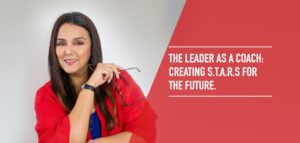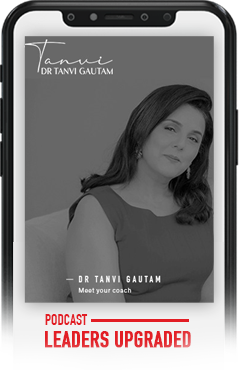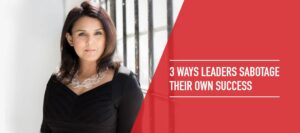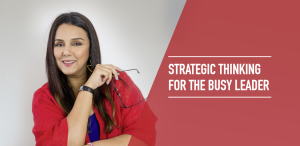

Is your career at risk? 3 step checklist
So in my executive coaching & teaching at the university I ask 3 questions of my clients/participants that help me assess how “at risk’ their career might be:
When was the last time you independently invested in your own growth ?
Why does this question matter ?
People who become complacent & rely on HR to come design a program for them or wait for their bosses to nominate them for training are at high risk because they have foresaken ownership of their learning into the hands of people who are mostly focussed on the immediate needs of the business and how you can better support the ‘business’.
So you maybe sent to a design thinking class (which is great) but what you may really need is conflict management skills. Handing over of your learning journey to others is problematic because many companies are focussed on getting people equipped with technical skills (AI, ML & the sorts) which while great for the here and now- again leaves a gap in the skills that are really needed (PRIME Skills- which we shall talk about later). Learning, unlearning, re-learning are life long skills that need your urgent attention.
Also often the investment companies make is in the high potential executives (which leaves me often asking how many people “could’ likely be high potential if there was more investment in all people. Some companies get this but most have a long way to go.
So when did you last speak with your wallet, time and energy – attended a program/workshop on your own time, paid for your own conference or executive coach without being nudged by the company ? Mostly the answer I get is ‘never’. I hope this is not you. If your own career is not worth your own investment and time then it is going to be at risk.
Next question:
Are you working “in” your job or are you working”on” your career ?
Working in your job is the default setting on most of our time in office. We go, we look at what goals we have to hit, we work hard and we look forward to a stellar performance review and assume we are disruption proof. That is when you are working “in” your job. In contrast when you work “on” your career you understand that a job is but a means to an end to a much longer runway of your career. With life spans having gone up and people looking at their jobs not just as a means of sustenance but also as a means of self expression will often result in people having more than one career in a life time. I know plenty Morgan Stanley bankers turned chefs contemplating becoming an executive coach. This was unheard of before.
So a focus on your career means you not only take a much longer tail view of your working life but also mindfully align it to your innate self expression & craft jobs, make choices and take assignments which are not always about the here and now.
In the absence of the “Career’ approach not only are you at the mercy of disruption but also at risk for hitting a sense of meaninglessness as I experienced before I left the high flying corporate world to do my Phd. (I mean how many recruitment and performance management cycles can a HR person endure and I reached that exasperation point rather quickly !). Final question:
Are you playing at intersections ?
The days of the one domain expert are over. Your exposure to other domains of knowledge or industries is vital for you to be disruption proof. Marketing people better understand information systems now that digital marketing is here. IT people better get the human dimension now that user centric design is taking over. HR people better get marketing now that customer journey has come to recruitment.
But it is not just about domain expertise but more importantly diversity in your frameworks. Let’s do a simple enough test right now – if your linkedin contacts are all in the same industry, similar skill set and ethnicity and age group you are not playing at intersections. I sometimes laugh and tell my largely Chinese or Aussie cohorts to go add a brown woman immediately on linkedin by sending me an invite and adding a tiny bit of diversity to the network.
Diversity in networks is also important because having connections in adjacent industries are what help you when restructuring and re-org hit because you are not swimming in the pool of the same group of people all of whom may have lost their jobs too.
And here is a favourite bonus question –
who or what do you hold responsible for your career not going the way you want it to ?
If the answer is a massive/excessive focus on – my boss/HR/industry/role/weather/commute or some other factor and a lesser focus on what is actually in your control- then also your career risk goes up because there are things we can control and things that we simply can’t. What are you focussing on says a lot about your sense of ownership/self efficacy of that which you “can” do something about. Yes there are toxic bosses, yes there are unfair appraisals and bias factors that come in the way. Yes the economy is not always working, yes jobs are in short supply at senior levels, and contracts fall through, and people don’t always play fair unfortunately. No one is denying that, but while you can’t choose your circumstance, you can choose how you respond to them. I am always keen to see what 5 things the person did try and the 6th thing they are trying to get themselves out of the mess they may find themselves in. This attitude really sets you up for success in the long term. This is not an easy thing always but it is an important factor in keeping you afloat.
Now, are these the only questions worth asking ? Not at all. Are these the ultimate insurance against disruption ? Nope. But are these massively important places to “start’ thinking about aspects of your career that are in your control. Absolutely.
One tiny question and one tiny shift can set off your career trajectory on the path of success.
Take this short quiz to find out if your career is a sinking ship?
Subscribe our newsletter to upgrade your leadership, life and career
Leaders upgraded podcast
The top names in leadership share their insights and advice for you










